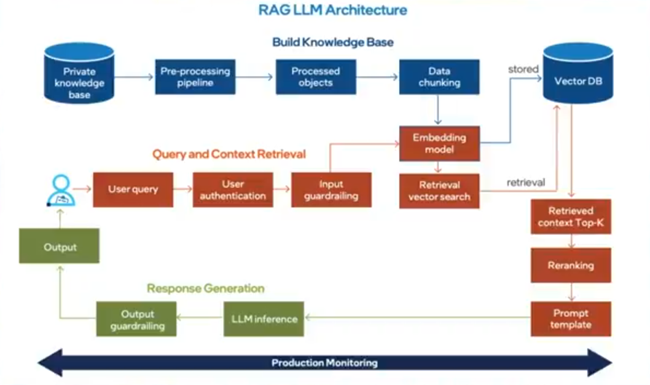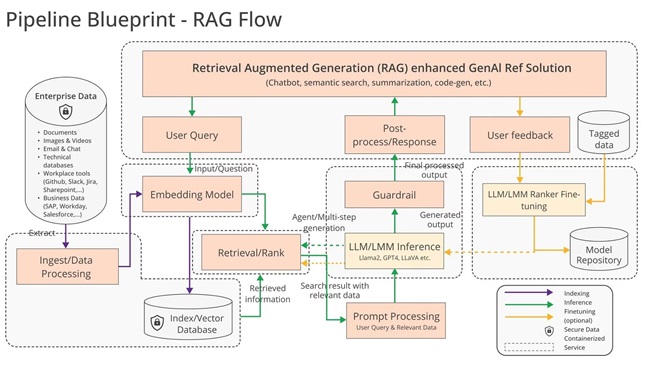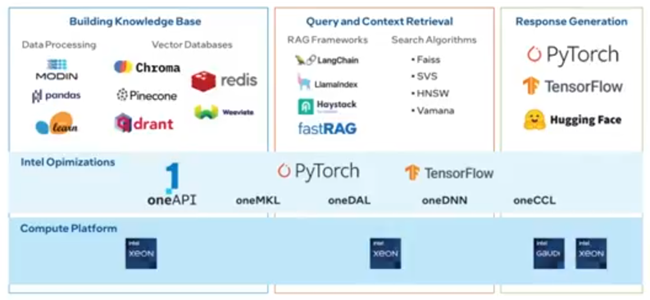
Intel has announced a partnership with the International Olympic Committee (IOC) to introduce a GenAI retrieval-augmented generation (RAG) solution for the Paris 2024 Olympic Games. This collaboration aims to enhance AI capabilities at the event.
Significance of GenAI Solutions
Intel highlights the importance of GenAI solutions in addressing challenges such as cost, scale, accuracy, privacy, and security.
RAG is crucial because it enables the secure use of proprietary data, improving the quality and reliability of AI outputs. This is essential for effective AI applications in today’s data-centric environment.
AthleteGPT Chatbot on Athlete365 Platform
The GenAI solution will feature a chatbot called AthleteGPT, integrated into the Athlete365 platform.
Designed to assist approximately 11,000 athletes from diverse backgrounds, AthleteGPT will provide real-time information during their stay in the Olympic Village.
Powered by Intel Gaudi accelerators and Xeon processors, this chatbot will help athletes navigate the venue and adhere to guidelines, allowing them to focus on their performance.
Architecture of the GenAI RAG Solution
Intel collaborates with industry partners to create an open-source, interoperable solution for easy RAG deployment.
The GenAI turnkey solution offers a streamlined approach for deploying RAG solutions in enterprise data centers and is designed to be highly flexible and customizable.

GenAI RAG Solution
Intel’s approach involves using AI platforms, open standards, and a robust software and systems ecosystem, enabling developers to build customized GenAI RAG solutions tailored to enterprise needs.
The GenAI solution is based on the Open Platform for Enterprise AI (OPEA) foundation and offers a streamlined deployment method for RAG solutions.

Key Features
- Integration: Utilizes microservice components based on the OPEA framework to deliver a scalable RAG solution.
- Scalability: Built for deployment with Xeon and Gaudi AI systems and supports scalability through Kubernetes and Red Hat OpenShift.
- Standardization: Offers standardized APIs that include security features and system telemetry.
- Open Software Stack: Built using PyTorch, Hugging Face serving libraries, LangChain, and the Redis Vector database.
- Flexibility: Highly adaptable, allowing integration of components from various OEM systems and industry partners.

Developer Support
OPEA provides open-source, modular RAG pipelines that support various compilers and toolchains, accelerating containerized AI integration for specialized use cases.
This framework enables efficient AI development. Intel’s GenAI turnkey and enterprise AI stack offer a comprehensive solution for deploying and scaling RAG and LLM applications in enterprises and data centers, optimizing GenAI’s potential with Intel-powered systems and software.
Future Developments
Intel is expanding access to advanced AI technology through partnerships with Google and IBM as part of the Coalition for Secure AI (CoSAI), which aims to enhance trust and security in AI development.
Additionally, Intel will present its AI systems and collaborations at the Intel Innovation event on September 24-25, 2024.
Speaking about the collaboration, Justin Hotard, Intel Executive Vice President and General Manager of the Data Center and Artificial Intelligence Group, said:
Through our partnership with the International Olympic Committee, we are showcasing our commitment to making AI more accessible. We are creating an open environment that promotes innovation and creativity, allowing developers and enterprises to craft customized AI solutions that deliver real results. By embracing a collaborative ecosystem, Intel is enhancing support for our athletes and expanding the possibilities for our customers.
